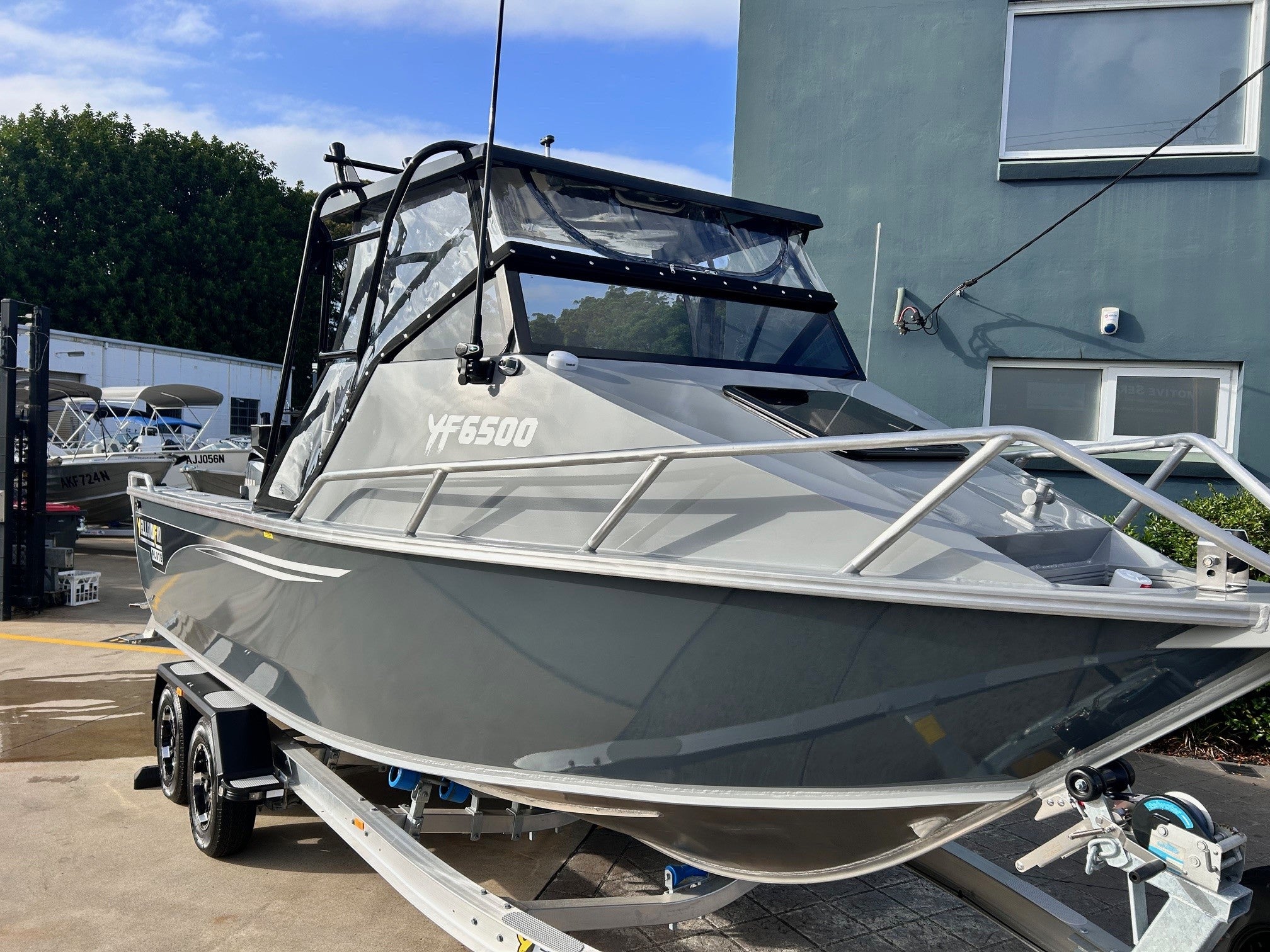
One of the best things about trailer boats is that you can take them with you as you explore our amazing coastlines! Whether you’re planning a family holiday, a fishing trip or need to travel for routine boat maintenance, road towing can be a great way to travel. Here’s everything you need to know for taking your boat on the road.
1. Check the legal requirements for your state.
Regardless of where you’re going in Australia, your vehicle and the trailer must be registered, trailers must display a rear number plate and of course you can’t have any people travelling in the boat or on the trailer while you’re towing it.
In terms of the towing rules it is always the vehicle manufacturers rating for that specific vehicle but also don’t forget that the tow bar manufacturer (either genuine or aftermarket) will have a maximum down weight so don’t go putting masses of weight in the boat up the front. Spread the load evenly in the boat if you are going to use it as a means to take all your camping or holiday gear with you.
There are additional rules to be aware of when you’re towing a boat trailer, and these may differ between States and Territories. Maximum speed limits will vary depending on the vehicles’ weight, towing restrictions apply for people who are Learning or on Provisional Licences and rules about braking and distance from other cars varies. NSW rules are here, and new QLD requirements came in to effect from 1st July 2023, SA has a simple guide here and Vic Roads guide here. The strictest rules are in W.A. where boats longer than 2.5m are prohibited from travelling on all freeways, and boats over 2.7m can’t travel at night time, during public holidays or peak traffic periods.
If you’re not sure of the local legal requirements then it’s best to check before you head out so you can travel safely and avoid any unwanted issues or fines.
2. Driving Tips
Even if you’re used to driving to your favourite boat ramps, it can take some adjusting to drive with a boat trailer on open roads and freeways. The extension of your vehicle length means a much wider turning arc, allowances need to be made when you change lanes, and of course you may need to take more than one lane when you’re turning a corner.
Make a note of the height of your boat on the trailer so you can avoid clearance issues with low bridges and tunnels, and take care when reversing. Always lay your rods down and strap them as they can add to your total vehicle’s height not to mention damage your rods if you go through a low tunnel, or under a bridge. When it comes to packing your boat, it’s always best to distribute cargo weight evenly with heavier items on the bottom and lighter on the top to avoid any potential jack knifing or other driving issues.
3. Check your Equipment
It’s really important that you keep your boat trailer well maintained and check it over before you hit the road. Since trailers spend time in and out of the water, look for damage especially around bends, joints, springs, welded areas, and rollers.
Make sure the tyres on your boat trailer are in good condition, with no cracking, have reliable treading and good tyre pressure. We recommend replacing tires aged 6-10 years, no matter how much tread remains. When it comes to replacing tires, things can be a little unpredictable. Mileage, condition and routine maintenance all contribute to the tire's safety and usability. You should replace them if you think they may have compromised integrity.
Tyre pressure is also important on a long trip as if they are not fully inflated the walls of the tyre heat up as they flex up and down for hours on end and then combined with the fact that the tyres are old they then blow out. It may be worth considering taking a spare tyre so you aren’t caught with a flat while you’re away – if you have the space we recommend buying a galvanised multi-fit wheel and keeping it in the boot of your car.
As well as making sure your car is safe, serviced and ready to go, always check towing hitches and safety chains for condition and serviceability, as well as the towing ball for security, and your d-shackles to be sure all connections are stable. At the same time, winch cables/straps should be inspected so you don’t run into any unexpected issues.
If you’re planning to hit the road towing your boat, we can help! From great places to visit to boat servicing and maintenance, head into our stores in Carlton, Wollongong or Batemans Bay, give us a call on (02) 9546-1324 or get in touch with our team.




